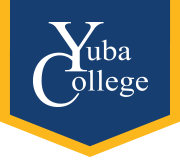Mathematics Major
The Department offers two options for an Associate in Science in Mathematics degree. The General option provides a rounded background in the mathematical sciences and statistics and is suitable as a terminal degree or for transfer to any 4-year college or university as a mathematics major. The Transfer option aligns with the State TMC to streamline transfer to a California State University as a mathematics major.
Associate Degree for Transfer (ADT)
Required
- Math 1A Single Variable Calculus I (4 units)
- Math 1B Single Variable Calculus II (4 units)
- Math 1C Multivariable Calculus (4 units)
Select one course from the following
- Math 2 Ordinary Differential Equations (3 units)
- Math 3 Linear Algebra (3 units)
Select one additional course from the following
- Math 2 Ordinary Differential Equations (3 units)
- Math 3 Linear Algebra (3 units)
- Phys 4A Mechanics (4 units)
- Comsc 6 Basic Programming (3 units)
- Comsc 7 introduction to Visual BASIC Programming (3 units)
- Comsc 9A C++ Programming (4 units)
Total units required for degree major: 18-19 units
Mathematics and Statistics Courses
Click here to access the visual representation of the math sequence.
Click here to access the course student learning outcomes.
Note: Any errors below are inadvertent. Always refer to the official college course outlines on eLumen. Where applicable, the State C-ID course number is referenced. The semesters in which a course is normally offered is noted below the course name.
| Course No. | Course Name | Description |
|---|---|---|
| Math 1A | Single Variable Calculus I – Early Transcendentals (4 units)
F,S,Su |
A first course in differential and integral calculus of a single variable: functions; limits and continuity; techniques and applications of differentiation and integration; fundamental theorem of calculus. Primarily for science, technology, engineering, and mathematics majors. Pre-requisite: MATH 20 and MATH 21 OR MATH 7 |
| Math 1B | Single Variable Calculus II – Early Transcendentals (4 units)
F,S,Su |
A second course in differential and integral calculus of a single variable: integration; techniques of integration; infinite sequences and series; polar and parametric equations; applications of integration. Primarily for science, technology, engineering & mathematics majors. Pre-requisite: MATH 1A |
| Math 1C | Multivariable Calculus (4 units)
F |
Vector valued functions, calculus of functions of more than one variable, partial derivatives, multiple integration, Green’s theorem, Stokes’ theorem, divergence theorem. Pre-requisite: MATH 1B |
| Math 2 | Ordinary Differential Equations (3 units)
S |
The course is an introduction to ordinary differential equations including both quantitative and qualitative methods as well as applications from a variety of disciplines. Introduces the theoretical aspects of differential equations, including establishing when solution(s) exist, and techniques for obtaining solutions, including, series solutions, Laplace transforms and linear systems. Pre-requisite: MATH 1B |
| Math 3 | Linear Algebra (3 units)
S |
This course develops the techniques and theory needed to solve and classify systems of linear equations. Solution techniques include row operations, Gaussian elimination, and matrix algebra. Investigates the properties of vectors in two and three dimensions, leading to the notion of an abstract vector space. Vector space and matrix theory are presented including topics such as inner products, norms, orthogonality, eigenvalues, eigenspaces, and linear transformations. Selected applications of linear algebra are included. Pre-requisite: MATH 1B |
| Math 9 | Calculus for Business, Social and Life Science (4 units)
F,S,Su |
Topics of calculus including differentiation, integration, graphs, limits, and rates. Applications from economics, business, life science, and behavioral science. Not open for credit to students with credit in Math 1A. Pre-requisite: Intermediate Algebra |
| Math 10 | Liberal Arts Mathematics (3 units)
F,S,Su |
Designed for students majoring in areas other than science, math, or business to give appreciation and insight into structure and applications of math. Some typical topics, to be chosen by instructor, may include probability and statistics, sequences and series, population growth, graph theory, geometry and topology, number theory, history of math, finance math, voting methods and apportionment. Pre-requisite: Intermediate Algebra |
| Math 15 | Concepts and Structures of Mathematics (3 units)
F |
Designed for students who plan to become elementary school teachers. In depth study of mathematical system with emphasis on problem-solving, real numbers, set theory, logic, number theory, and fundamental counting problems. Essays on topics of current interest to the teaching profession, class presentations, and a study of techniques and materials used in today’s elementary school classroom may also be included. Pre-requisite: Intermediate Algebra |
| Math 16 | Concepts and Structures of Mathematics (3 units)
S |
Designed for students who plan to become elementary school teachers. Problem-solving, probability and statistics, measurement and the metric system, and geometry. Essays on topics of current interest to the teaching profession, class presentations, and a study of techniques and materials used in today’s elementary school classroom may also be included. Pre-requisite: Intermediate Algebra |
| Math 20 | College Algebra (4 units)
F,S,Su |
College level course in algebra for majors in science, technology, engineering, and mathematics. Topics include polynomial, rational, radical, exponential, absolute value, and logarithmic functions, systems of equations, theory of polynomial equations, and analytic geometry. Pre-requisite: MATH 52 |
| Math 21 | Plane Trigonometry (4 units)
F,S,Su |
Trigonometric functions, fundamental formulas, identities, solution of triangles, and complex numbers. Pre-requisite: Intermediate Algebra |
| Math 25 | Finite Mathematics (3 units)
S |
Linear functions, systems of linear equations and inequalities, matrices, linear programming, mathematics of finance, sets and Venn diagrams, combinatorial techniques and an introduction to probability. Applications in business, economics and social sciences. Pre-requisite: Intermediate Algebra |
| Stat 1 | Introduction to Statistical Methods (4 units)
F,S,Su |
Descriptive statistics; measures of central tendency, variation, and correlation. Probability, sampling, and sampling distributions. Inferential statistics: estimation and tests of statistical hypotheses. For majors in natural science, social science, and business. Pre-requisite: Intermediate Algebra |
Last modified on 1/20/2025. (Please report dead links.)
